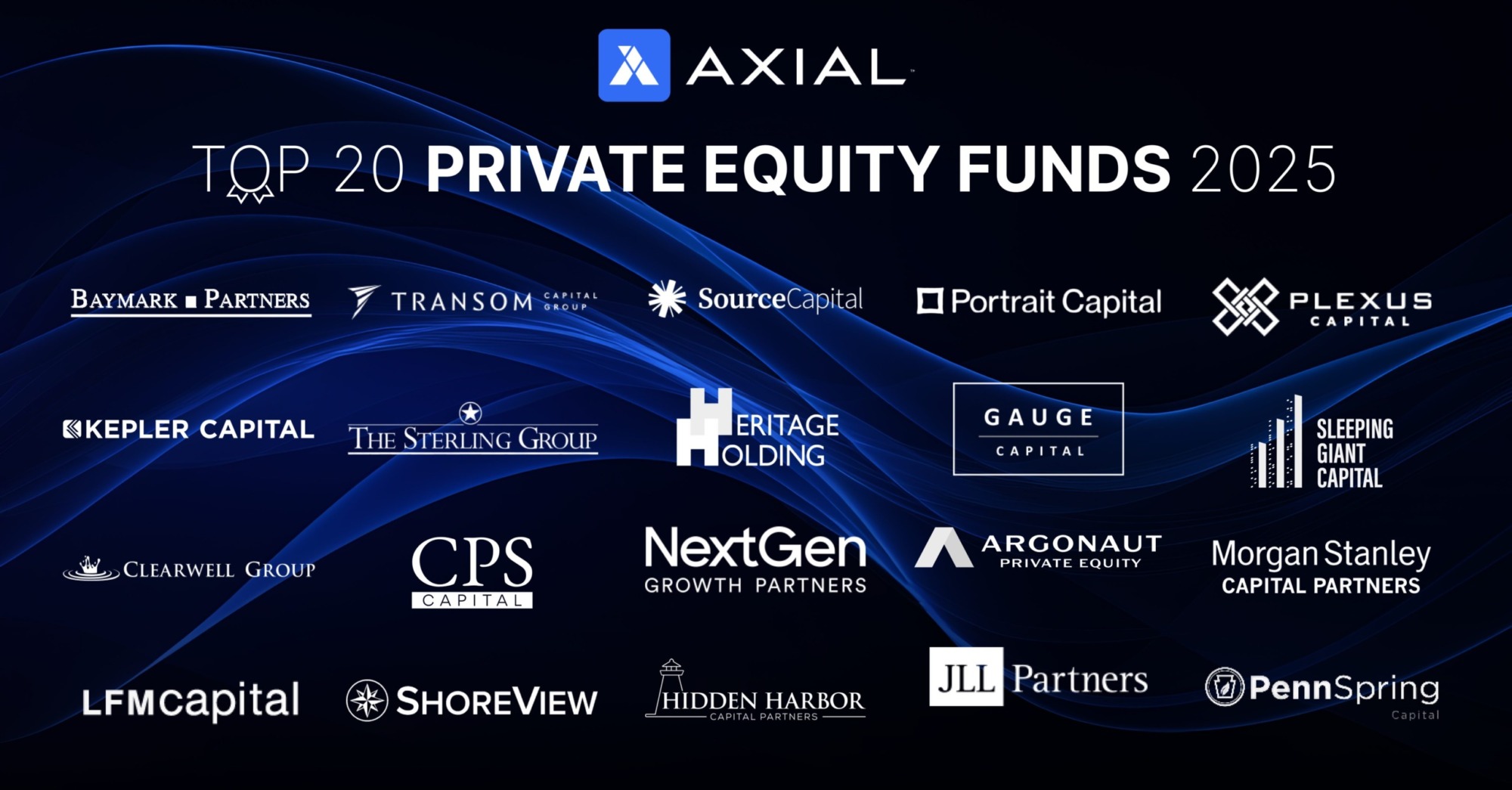
The 2025 Top 20 Private Equity Funds on Axial
We are thrilled to release the 2025 Top 20 Private Equity Funds on Axial! This ranking highlights the most active…
Tags
Nearly 8,000 baby boomers in the United States turn 65 every day. With this aging population comes the potential for a sharp uptick in middle market business sales — as well as more and more boutique investment banks looking to represent these deals.
For strategic acquirers, creating and nurturing relationships with bankers is key to building a steady pipeline of acquisition opportunities.
It’s important to reach smaller bankers as well as larger firms. While it may be tempting to focus your corporate development strategy on high-volume bankers, this could mean missing out on almost three-quarters of deals. According to data from Sutton Place Strategies, 73% of deals over $10 million in enterprise value were represented by so-called small-tier intermediaries — firms that typically bring only 1-9 deals to market each year.
What’s the most efficient way to meet and network with small-tier investment bankers? Because these smaller bankers bring so few deals to market, the chances of a single one sharing a relevant deal is relatively low for a given year, especially if the corporation is in a niche industry or has a very specific investment mandate. It doesn’t make sense to spend herculean amounts of time and money on nurturing relationships with each firm (this would be financially and logistically impossible for most companies anyway).
The key is to find scalable and effective ways to keep your company and its acquisition criteria top of mind. “You need to be on the radar for all appropriate regional or industry-focused investment banks,” says Stenning Schueppert, formerly the Senior VP of Strategy & Corporate Development at Total Safety, where he made eight acquisitions in his first 18 months.
If you’re a Fortune 500 company, it may be true that every investment bank already knows who you are. But this isn’t the case for most middle market companies, particularly if you’re a first-time or occasional acquirer. “In most cases, middle market investment banks have very good organizations around financial sponsor coverage, but in few cases do they have good coverage for strategic acquirers,” says Schueppert, now Managing Director at CenterGate Capital. “As a strategic, it is your responsibility to get your mandates in front of investment banks.”
How?
